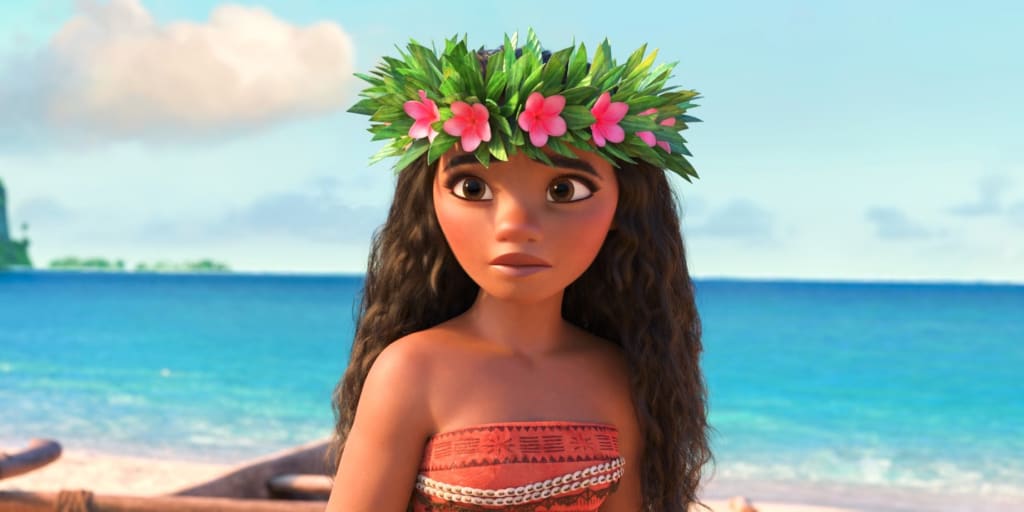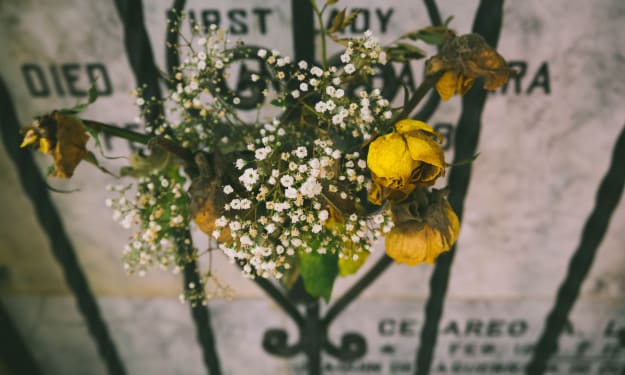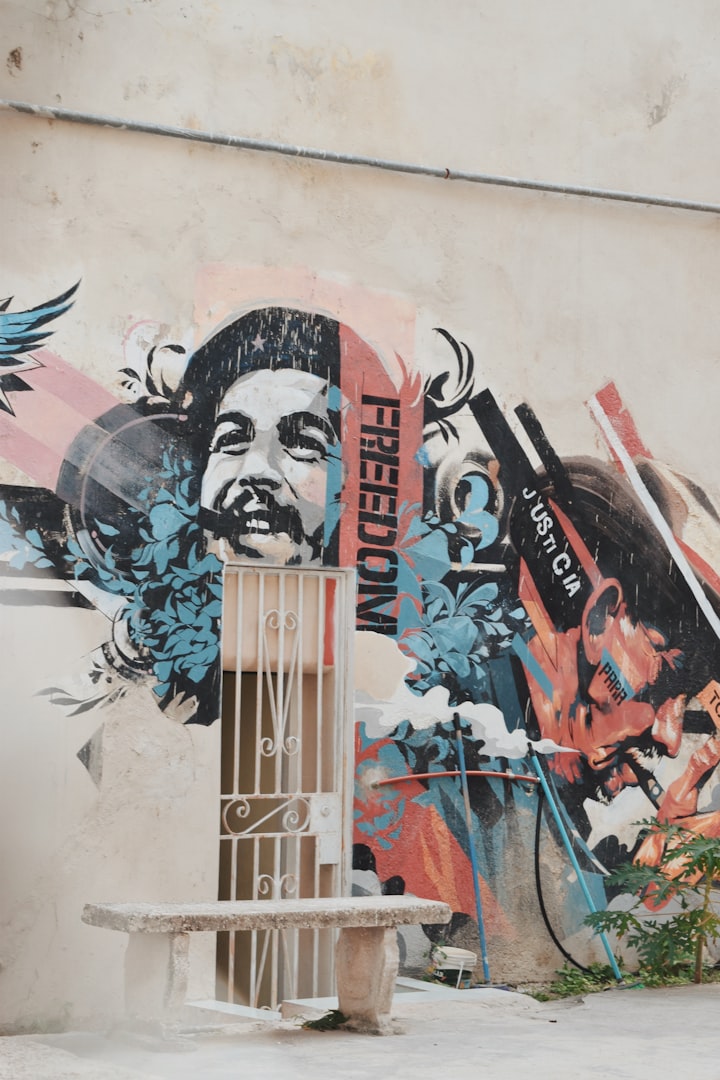Cultural Appropriation Costumes
Racism, Kids, and Halloween

Let's start this article with a caveat.
I am a White, cisgender female. I experience a great deal of privilege. I also do not have children, so when a friend of mine posted a Facebook status talking about whether or not it was racist to allow her daughter to dress up as Moana for Halloween, I had to take a step back.
I have always been very careful never to give parenting advice. I have two sisters with six kids between them, and I know exactly how complicated and difficult parenting can be, but I would never claim to have enough first-hand knowledge to judge another parent.
As for racism, there is only so far my opinion as a White person will go. I will always encourage people to listen to those who have a far better claim on these issues than I do. Articles like these, written by people of color discussing Halloween, orthis article which highlights activist groups and tweets from people of color. Sachi Feris over at Raising Race Conscious Children also wrote a fantastic piece on this topic.
But I do have some thoughts of my own, at least about the way in which this conversation is handled.
I responded to the initial post, highlighting the complicated issues of race and how important they were, and also the difference between say, a Hula Dancer costume (explicitly racist) and a Moana costume. Moana, I argued, celebrates Polynesian culture, and if there's no skin coloring involved, I personally think it's an all right costume. Most tended to agree with me, though many simply said, "This is ridiculous! They're kids, let them be kids! They don't understand racism!"
But children are far smarter than we give them credit for. My nieces, who are of a mixed race, definitely understand racism. I understood racism when I was a child, growing up in a small town where there was exactly one POC family. I have felt my heart break as I watched my nieces struggle through institutionalized, systemic racism that puts barrier after barrier into their path. I have watched them deal with other children who refuse to accept them, because my nieces do not fit neatly into any category. I have seen the quiet looks of judgement on other parents' faces when they look at my nieces, their mother, and the rest of our family, wondering silently where we went "wrong." (To them I say, our nieces are a goddamn blessing, and the light of our lives on family vacations, so you can see yourself out.)
Children deal with racism on a daily basis. They deal with it in biased history lessons, they deal with it on the playground, they deal with it online -- and more and more children are online, for better or worse. This is no longer a world we can shield children from, they're on the front lines of it, especially around Halloween. So the question becomes, how do we talk to our children about racism?
I encourage you again to look at Raising Race Conscious Children. They're far more educated in this topic than I am. But I think dismissing it out of hand as a problem "not suitable for kids" is the first and biggest mistake we can make.
The Moana Costume Debacle, I think can be a wonderful learning opportunity. One mother, mentioned here attempted at first to talk her white daughter out of dressing as Moana. When her daughter persisted, and for the right reasons – because she loves the character – the mother decided that they needed to do some research, and find a way to wear this costume respectfully.
Some would argue that Moana is a fictional character, and therefore, open to everyone. But Moana is deeply rooted in Polynesian culture, and to dismiss the profound effect that fictional characters have on our lives and perspectives is simply ignorant. Reading increases empathy. The reason representation of POC is important in the media is because the more we see and understand that our world is diverse, the more aware we are of our own prejudices. The more equipped we become to combat those prejudices, and to make this world better for everyone involved.
Cultural Appropriation is not an easy issue, and should not be treated as such. The key, I believe, is in increasing our understanding and educating ourselves. There is nothing wrong with loving another culture, appreciating its customs, and thinking they are beautiful. It is wrong to only appreciate the aesthetic and to try and imitate it the way you think it should be done, as shown in this video that should be way more viral than it is. The young man takes a strong stance against cultural appropriation, saying that "We gotta listen to the original people of this land, and I know everyone wants to say we are all one people. We not all going to be one people until we have equality and equity and start respecting."
On the other end of the spectrum, we have this post that did go viral. About a little girl's Japanese inspired tea-party. First called out for being culturally insensitive, a Japanese person came to the mother and little's defense, saying they had shown a great deal of research and respect and effort. She also pointed out that Japanese culture, like American, is a mixture of many. And without that mixture, we all lose out and grow stagnant.
So where do we find the balance here? I've always believed that life is about balance. Where is the line drawn between celebrating a culture and appropriating it? How do you know if you're being truly respectful? As I've said, try to reach out to people from that culture and get their perspective. Do not expect them to educate you, and respect them if they don't. It's not on people of color to put us white people right, it's on us to do better. There's a lot of literature and essays and blog posts out there, I've only linked about ten in this article alone. A quick google search might be able to open your mind a lot.
Here's another one, about the Nightmare Before Christmas. I saw a Tumblr post many eons ago about how it's actually a large metaphor, intentionally or not, for cultural appropriation. There's nothing wrong with Jack adoring Christmas, or even showing it to his friends in Halloween Town. The problem comes when he says:
You know, I think this Christmas thingIt’s not as tricky as it seemsAnd why should they have all the fun?It should belong to anyoneNot anyone, in fact, but meWhy, I could make a Christmas treeAnd there’s no reason I can findI couldn’t handle Christmas timeI bet I could improve it tooAnd that’s exactly what I’ll do
I think it's appropriate that a classic Halloween movie is largely rooted in cultural appropriation. Because every year, people decide to cherry pick what they like best about various cultures – Native American headdresses, Japanese kimonos, Hawaiian leis – and eschew the rest of the culture in favor of looking pretty. They reduce great, historical cultures down to costume pieces.
But what about little kids who just really, really love Moana?
I think there's a difference here. A murky one, a complicated one, that's for sure. And like I said, I'm not a parent, I can't make or judge other parents' decisions. I can say this though: if your child wants to dress up like Moana, or Mulan, or Jasmine, or any character who comes from a culture significantly different than your own, take the opportunity. Use it to teach your child about racism, how it effects the world we all live in. Use it to teach them about that culture. Why does Mulan's armor look like that? Is there significance to Jasmine's hairstyle? What's the historical background of Moana? I guarantee you can find a way to make it interesting, and more importantly, to help your child better understand the costume they're wearing. Help your child celebrate other cultures, not merely imitate them. Engage them, and they will be more engaged in the world.
It comes down to respect. A hot-topic issue, I've come to understand, when raising a child. You teach them to respect you, their elders, their friends, everyone around them. So teach them to respect the vast diversity this world has to offer.
About the Creator
Tarin Campanella
Writer. Feminist. Sustainabilibuddy. Fight me.







Comments
There are no comments for this story
Be the first to respond and start the conversation.